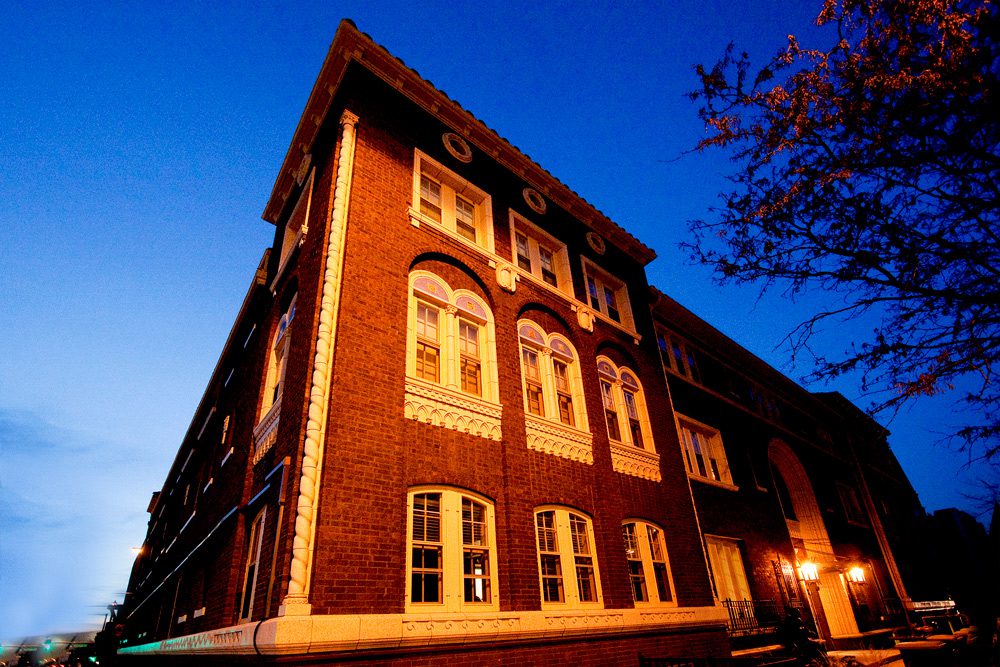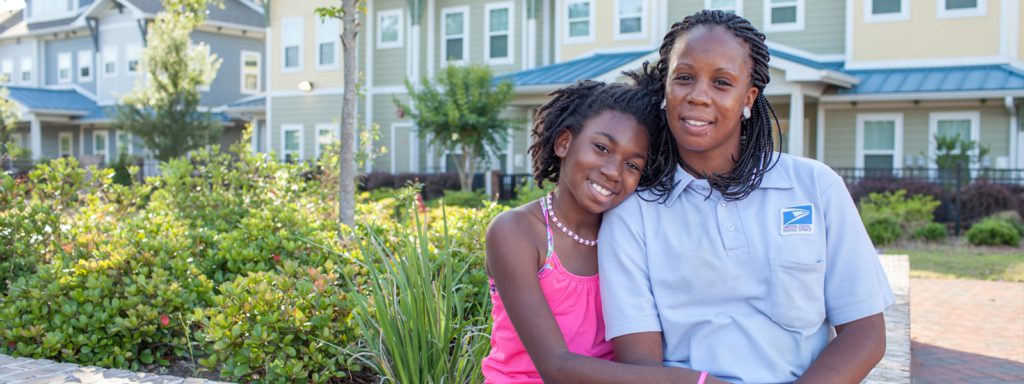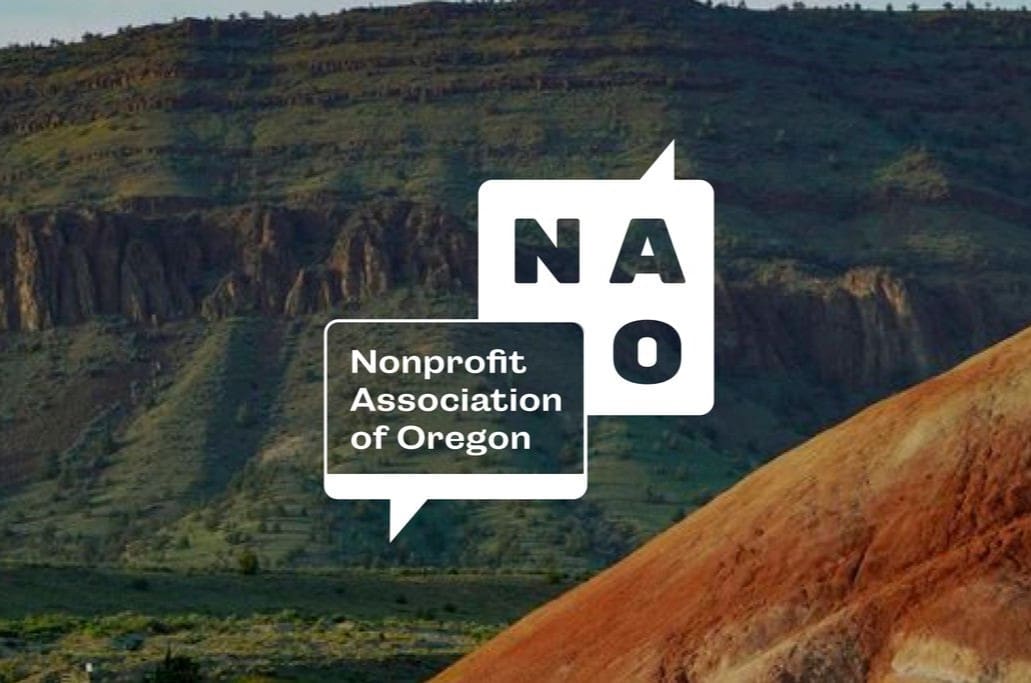IS members represent nonprofits, foundations, and corporations engaged in every kind of charitable endeavor, with missions that reflect the nearly infinite ways of working for the common good.
New member Mercy Housing creates stable, vibrant, and healthy communities by providing affordable, service-enriched housing for families, seniors, and people with special needs. Mercy Housing is a nonprofit working on a national scale with headquarters based in Denver, and regional offices in several cities across the country.
We talked with Michele Mamet, Chief Operating Officer of Mercy Housing, about how their work in affordable housing goes beyond buildings to transform lives and neighborhoods.

IS: Tell us a little bit about your career path and how you arrived at your present position.
MM: I had an unorthodox path to nonprofit work. I started in HR and leadership training for a pharmaceutical company. Then I worked in for-profit real estate. I ended up volunteering with Mercy Housing in that capacity, and was able to witness the impact of their work. When I was approached by Mercy Housing about working there, I jumped at the chance. Nine years later, I’m still thrilled to be here.
IS: What does a typical day for Mercy Housing staff look like? Was there a day you remember that was extraordinary?
MM: There’s no typical day for anyone at Mercy Housing. Our work is very dynamic and compelling. A day I will always remember was my second day of work here when I went to the opening of our new building here in Denver, the Aromor. In the hallway, I noticed a picture hanging on the wall. When I asked about it, I was told that before the building was renovated, there were squatters living there. The construction workers found graffiti saying, “I wish someone loved me,” and took a picture of it. Seeing that – it acknowledged the despair and loneliness that had been there in that building. It showed the importance of the hope that would be provided to the new residents, most of whom had been chronically homeless previously. That day was incredibly powerful for me. That was the first of many grand openings I have attended and it set the stage for the nine years that have followed. The level of impact on individuals and ultimately the community has been really powerful. Our staff ends up going to the Aromor a lot. It is down the street from our headquarters building in Denver.
IS: What keeps you energized and motivated about your work over the past nine years?
MM: The mission and culture of Mercy Housing is amazing. We were founded by Catholic sisters in 1981. We aim to provide beautiful, affordable housing with wrap-around social services. Our founders are real risk-takers, both financially and programmatically. They are innovators. They have a long-term vision about alleviating poverty through housing. This vision gives us the flexibility to plan beyond quarter by quarter. This is compelling for me personally and for our staff. We believe in collaborative planning processes, which includes everyone in decision making.
IS: What are some helpful ways Mercy Housing engages with partners?
MM: For the typical housing unit, we can have as many as 11 layers of financing. That means there are up to 11 partners for each of our units. Each of those partnerships takes five to seven years to cultivate before we reach a deal. We are very committed to our partnerships, and we are proud of our reputation for collaboration. Partnerships are truly central to our work.
In addition to our financial partners, we have partnerships for our resident service programs, like the Boys & Girls Clubs of America, local food banks, and local health organizations and providers, to help build stable and healthy lives for residents.
IS: What are some of the challenges you face in your organization and how have you responded to them?
MM: We have 40,000 residents in 41 states, which makes community outreach one of our biggest challenges. We’re not only a property manager, we are helping a community that’s often long distressed. We convene local conversations about what we can do in housing to create a good environment for kids, parents, and other members of that community. We ask ourselves about integration with communities and how to be a good community partner.
We want to make an impact beyond just brick and mortar housing. Our intention has never been to amass real estate. We’ve been seeing less of the “not in my backyard” mentality lately, but there are still fears and stigmas about affordable housing coming into communities. We have to confront that and learn how to be a hub for services for an entire neighborhood.

IS: What are some of your environmental considerations when building a unit?
MM: We see the opportunity to make an impact with our buildings. We signed up for the Better Buildings Challenge through the U.S. Department of Housing and Urban Development (HUD) to create eco-friendly buildings. We equip our units with LED lighting, reduced flow toilets and showers, recycling, and some even compost. Where possible, we source our building materials locally and use solar paneling.
IS: Describe some of the programs or services your organization runs.
MM: The key to our impact is not just in the housing, but in the resident services provided at our properties. Services are based on what has been tested and best practices in the field — for example, the after-school programs for children and health services for seniors. Supportive housing means multiple layers of care. For instance, our staff are training to understand trauma-informed care around addiction and mental health. We’re trying to ensure that every interaction with our staff is based on their understanding of the effects of trauma on people’s behavior.
In addition to Mercy Housing’s overall work as a nonprofit, we have a subsidiary called the Mercy Loan Fund, a Community Development Financial Institution (CDFI), which funds projects of other organizations that support affordable housing and other community infrastructure projects. This goes beyond the cities where we work through Mercy Housing to reach 39 states and has provided 511 loans and $326 million.
IS: What are you most excited about this year?
MM: I am personally excited about developing our new strategic plan, which we do every five years. During this year’s process I am excited that we will be including resident input in addition to the staff and board of directors. Our continued growth means addressing the highest needs where we work across the country. More states and communities are taking initiative to address affordable housing beyond relying on federal funding, which opens more opportunities to work with different communities.
IS: Is there an unsung hero in your network that you’d like to recognize?
MM: We have 1,500 employees, so this feels like picking my favorite child! But if I had to say, I would highlight our maintenance technicians. There are one or two at each of our properties. They make sure all homes meet residents’ needs, including fixing air conditioning and plumbing problems. They are committed to our mission and our residents. They truly are the heartbeat of the organization. They have a very hard job and limited funds to do it – but they are phenomenal and creative. Not every property has every social service, but every property has a maintenance technician.
IS: Is there anything we’ve missed that you would like to share?
MM: We are driven by more than just developing real estate. We are doing this work in the name of social justice and equity. Our ability to see the big picture keeps us grounded in where we need to keep going.
Learn more about Mercy Housing at https://www.mercyhousing.org/.
Visit our members page to learn more about our members.



